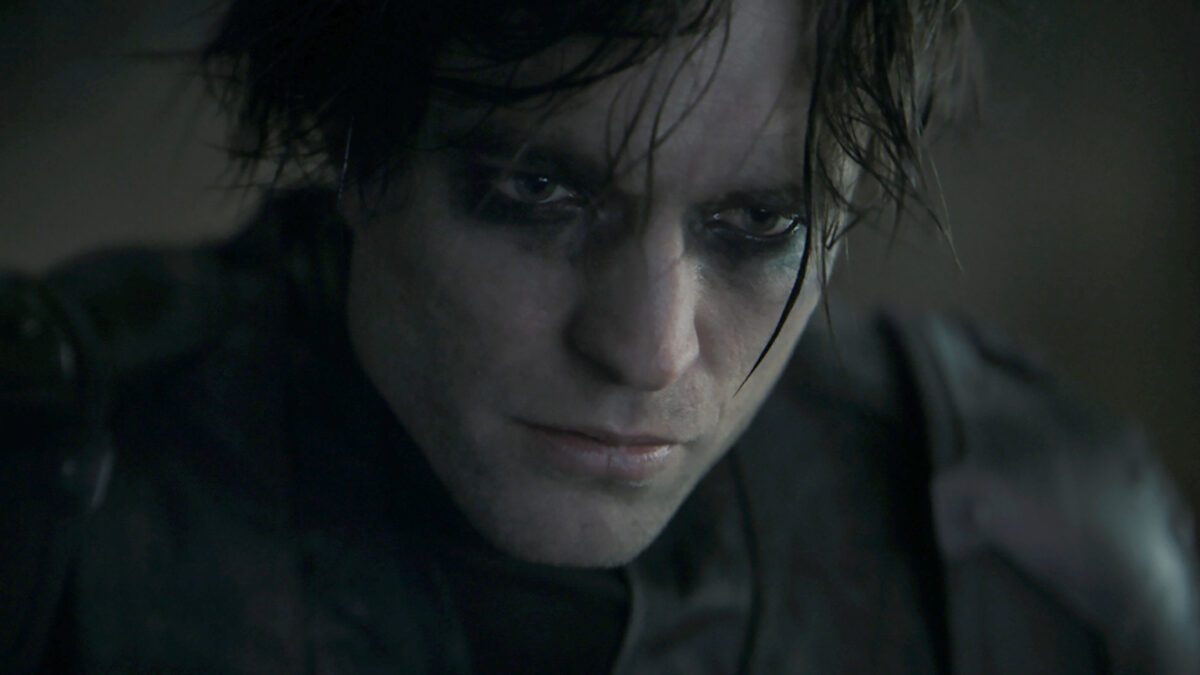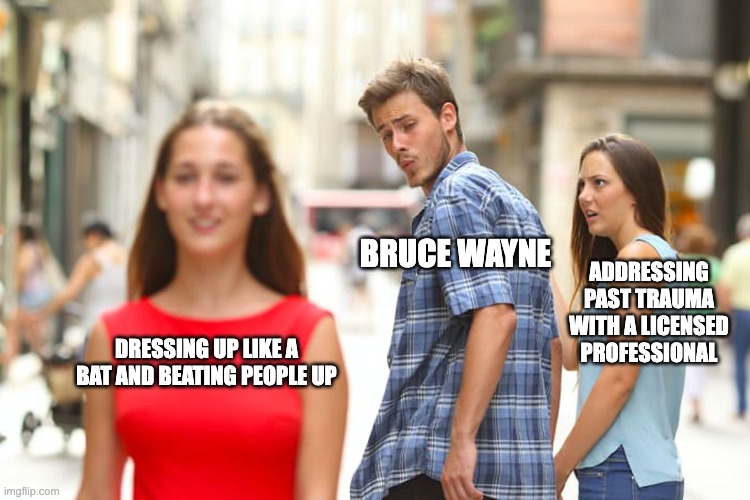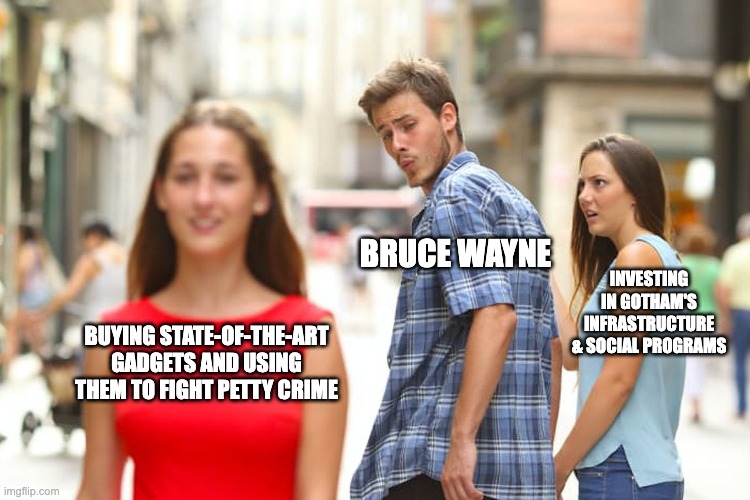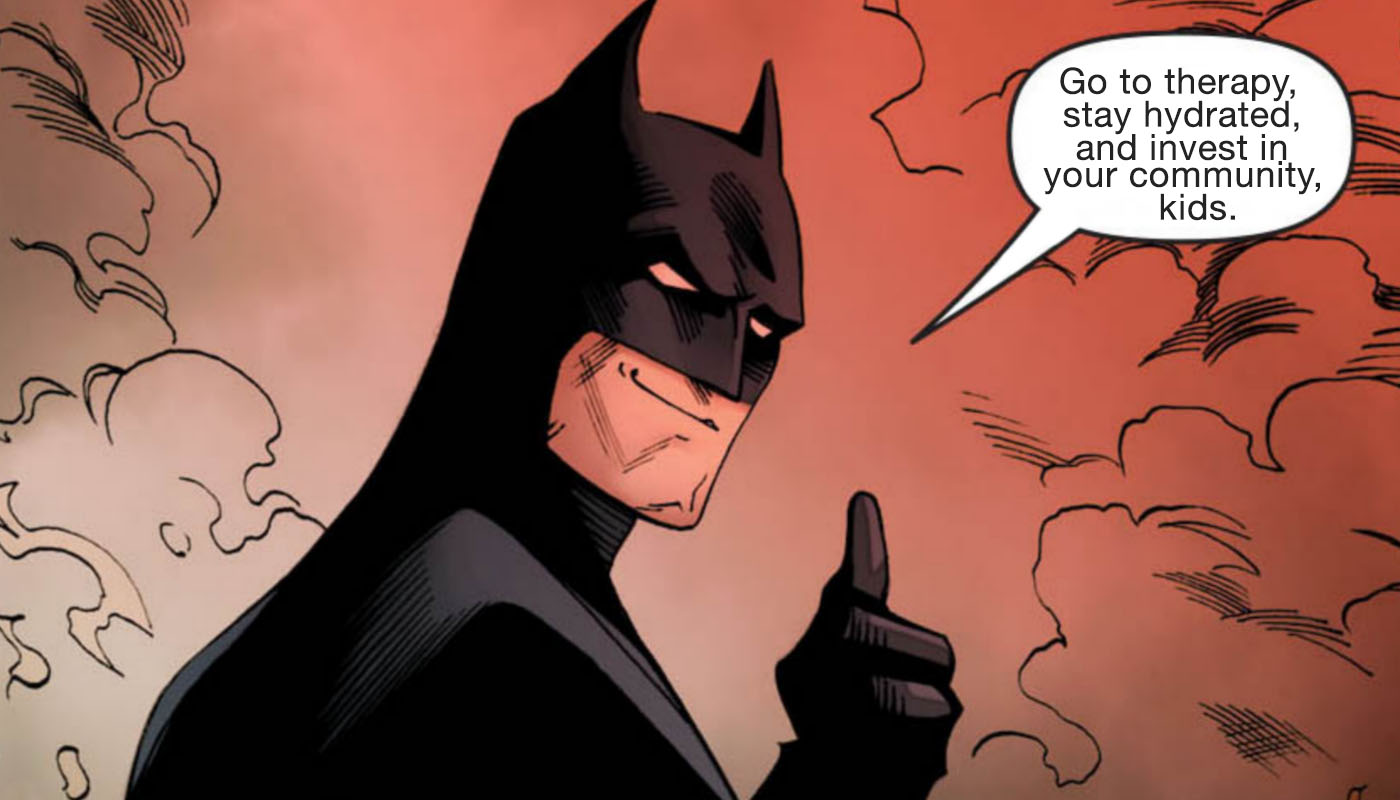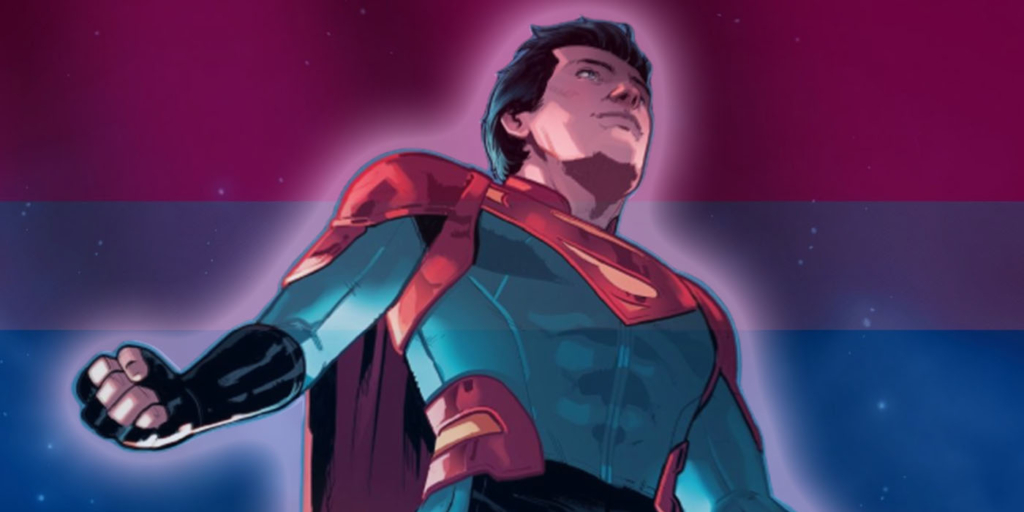Is Batman Still Relevant Today?
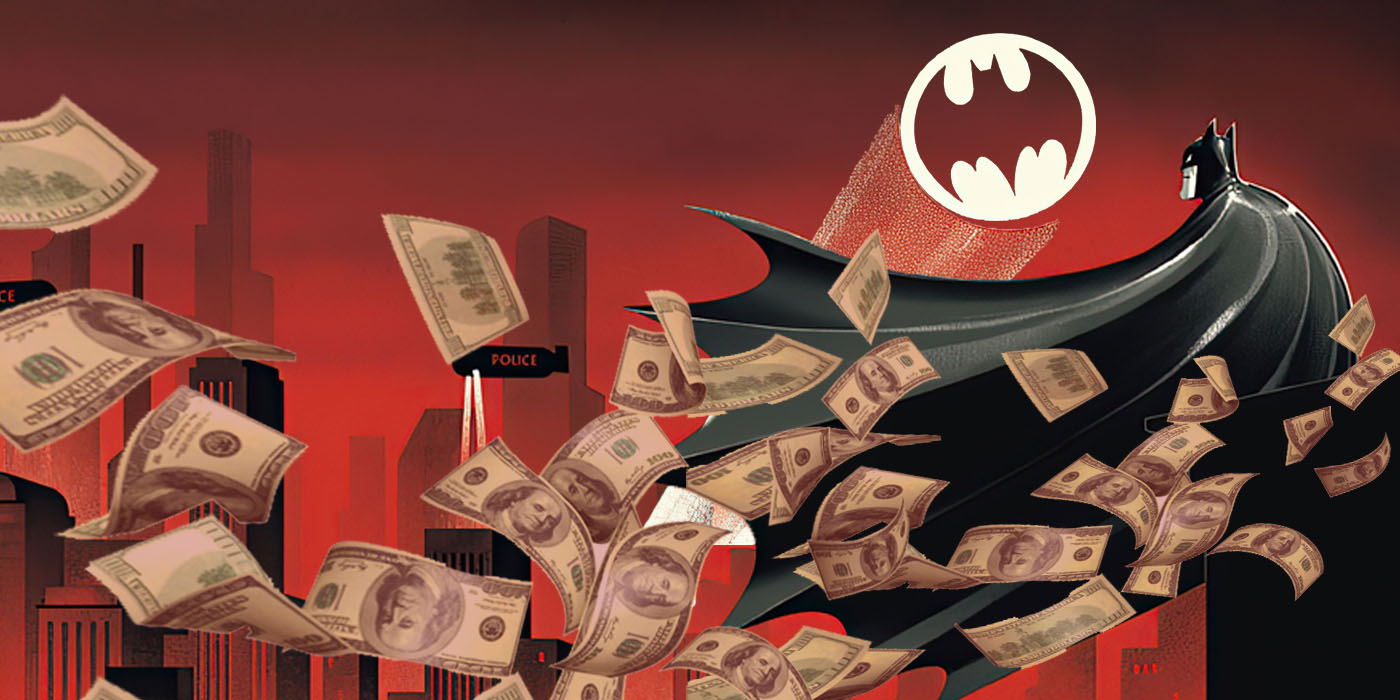

Batman is arguably the most prolific character in comics. Another Batman film premieres in March 2022– but does the Dark Knight belong in the modern world?
One day before the start of DC’s Fandome event, The Batman‘s voice teased a new trailer for the film to be released at the online event. Audiences got to hear another iteration of Batman’s voice, causing a lot of excitement among fans. But all the anticipation has got me wondering… is Batman relevant in today’s world?
“It’s not just a signal; it’s a warning.” ❤️ this Tweet for reminders before and when #TheBatman is released. pic.twitter.com/ouos1t3PZ4
— The Batman (@TheBatman) October 14, 2021
Before you start throwing Batarangs at me, I categorically consider myself a Batman fan. The Bat-family tree bears some of my favorite comic book fruits, like Barbara Gordon, Poison Ivy, and Harley Quinn.
I grew up watching Bruce Timm’s Batman series religiously, and my bookshelves feature a hefty amount of merch fashioned after the Caped Crusader and his cadre of villains. But as time marches forward, and with it, our social attitudes about wealth gaps and mental health, the plight of Bruce Wayne becomes less and less compelling. We have to wonder, how will this new movie make Batman feel relevant?
Before we dive in, it’s important to point out a couple of things:
1. I am not a doctor. I don’t even play one on TV. I have no authority to diagnose these fictional characters with anything.
2. These characters are just that– fictional.
Just Go to Therapy, Bruce
The greatest challenge the Batman mythos faces in the modern day is the normalization of therapy.
Thanks to the wonders of modern communication, we’re sharing experiences and learning more about our own minds every day. Normalizing the act of talking to someone about our emotions and traumas has become more socially accepted– particularly after the pandemic forced us all to spend a lot of up-close-and-personal time with ourselves.
This isn’t a just recent observation, either. 1993’s Batman Forever (best known as the first appearance of the Bat-Nips) introduced Bruce to a therapist– the thirstiest criminal psychologist ever. Most of the psychological premises her character brings up are junk science, including repressed memory theory. But it’s fascinating to see the story introduce Bruce to a therapist at all. Unfortunately, the film “resolves” his trauma in a very flimsy way: he’s dating a psychologist now, so obviously he’s cured.
Ben Affleck, past Batman and a self-proclaimed super-fan, has also agreed that Bruce needs therapy. And our obsessions with pathologizing the Caped Crusader has become a running discourse and joke among both fans and critics.
Well, at least in Justice League Unlimited he gets to express some emotion in song.
Put Your Money Where Your Mouth is, Bruce
Psychologist and author T. Langley of A Dark and Stormy Knight: Why Batman points out:
“Spider-Man and Superman are heroes because of their great upbringing because their adoptive parents taught them through word and deed that with great power comes great responsibility. Bruce Wayne’s altruistic parents similarly taught him to help those who have less than himself. Upbringing helped make heroes of all three, but a radioactive spider and extraterrestrial biology made superheroes of two of them. Batman made himself super.”
But the problem is that Bruce sees money as a way to acquire gadgets that give him power rather than acknowledging that his money and family name ARE his power.
The fact that he doesn’t use them to their full extent illustrates that Batman doesn’t exist for Gotham, he exists for Bruce Wayne. That certainly tarnishes the sacrifice and altruism of iconic Batman stories of the past.
It also doesn’t help that Gotham seems suspended in time somewhere between the 1930s and the modern-day, run by old-style mobster families. The fact that their facility for the mentally ill is still called an asylum and residents are kept in cells so similar to prison certainly leaves the reader with more work to do if they want to suspend disbelief.
Just think of how much more humane this facility would be if Bruce scrapped the Batmobile for parts and used the cash to secure adequate conditions for Gotham’s mentally ill?
The Real Question is Who is Batman to Us?
Batman functions for audiences as a darker vigilante self; he’s what we could do if we could harness our base instincts to solve all of our problems. It’s a fantasy we’ve all shared, sure.
But the last two years have seen a shift in conversations about the effectiveness of the prison system, the ubiquity of mental distress, and the massive income and quality of life gaps in America, where the fictional city of Gotham exists. And I, for one, am very keen on scrutinizing how a post-2020 Batman addresses those perspectives (if it does at all).
Am I going to go see The Batman? Absolutely. Will I have a good time? Most likely. At the end of the day, The Batman exists in a fictional world, so I’m not obligated to relate to the guy in order to enjoy another chapter in his mythology.
And that’s just what he is– modern mythology. But the most effective mythology helps to illuminate truths of the time in some abstract way, and The Batman has got some catchin’ up to do if he really wants to challenge his audience.

